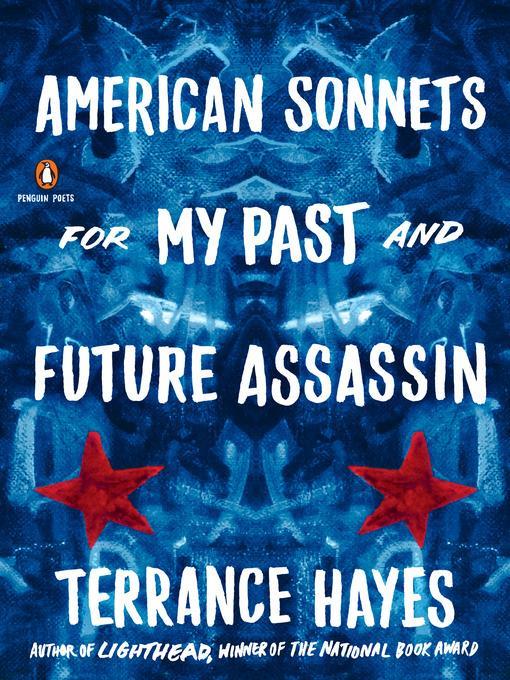
American Sonnets for My Past and Future Assassin
Penguin Poets
کتاب های مرتبط
- اطلاعات
- نقد و بررسی
- دیدگاه کاربران
نقد و بررسی

April 16, 2018
Hayes (How to Be Drawn) addresses this marvelous series of 70 free-verse sonnets to his potential assassin: a nameless, faceless embodiment of America’s penchant for racially motivated violence. The poems are redolent of Hayes’s signature rhythmic artistry and wordplay: “After death. Our warriors, weirdos, antiheroes, our sirs,/ Sires, our sighers, sidewinders & whiners, winos/ And wonders become dust.” Hayes mockingly refers to President Trump as “Mister Trumpet” and excoriates his fellow Americans for seeking “A leader whose metallic narcissism is a reflection/ Of your own.” He captures the existential dread of the first year of Trump’s presidency accurately, but also provides some whimsy for the weary, referring to the present time as “The umpteenth slump/ In our humming democracy, a bumble bureaucracy/ With teeny tiny wings too small for its rumpled,/ Dumpling of a body.” Hayes references a range of poetic precursors and sings the praises of numerous black cultural figures, including Langston Hughes, Jimi Hendrix, and Toni Morrison. An ode to James Baldwin describes the crease between his eyes as “a riverbed branching/ Into tributaries like lines of rapturous sentences/ Searching for a period.” Inventive as ever, Hayes confronts America’s myriad ills with unflinching candor, while leaving space for love, humor, and hope.

May 15, 2018
"Are you not the color of this country's current threat/ Advisory? And of pompons at a school whose mascot/ Is the clementine?" It takes a moment to register that this ode to orange from National Book Award winner Hayes (Lighthead), one of 70 masterly sonnets inspired by the late Wanda Coleman's American Sonnets, references Donald Trump. Written during the first 200 days of Trump's administration, these meditations register righteous anger. "Probably twilight makes blackness dangerous/ Darkness," advises one poem, and another: "The bones managing the body's business are cloaked/ until you assassinate my nigga flesh." But there's celebration, too: "Seven of the ten things I love in the face/ of James Baldwin concern the spiritual/ elasticity of his expressions." VERDICT "In a second I'll tell you how little/ Writing rescues," says Hayes, but his rescues a lot. Highly recommended.
Copyright 2018 Library Journal, LLC Used with permission.

May 15, 2018
By now, MacArthur fellow Hayes (How to Be Drawn, 2015) is well recognized as a highly accomplished, phenomenally talented poet, whose work interrogates race, America, canonical literature, art, domesticity, history?the list goes on. For his sixth book of poetry, Hayes has composed 70 sonnets, all sharing the same title as the collection itself. Even for such a consistently brilliant poet, the strict parameters of the sonnet can prove challenging. Unsurprisingly, Hayes masters this classical form, taking creative liberties with meter and rhyme to deliver unsettling incantations ( Probably twilight makes blackness dangerous / Darkness. Probably all my encounters / are existential jambalaya ); hostile confrontations ( I lock you in an American sonnet that is part prison, / Part panic closet, a little room in a house set aflame ); and occasional love letters ( Seven of the ten things I love in the face / Of James Baldwin concern the spiritual Elasticity of his expressions ). With this incomparable collection, Hayes joins others in taking on the sonnet, including Natasha Trethewey and Laurie Ann Guerrero, reinvigorating its form and reimagining the possibilities of American literature.(Reprinted with permission of Booklist, copyright 2018, American Library Association.)

























دیدگاه کاربران